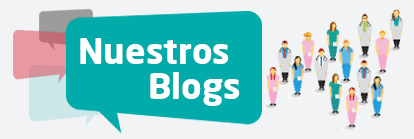Psychiatry and Clinical Psychology
Research:
Mental Health Translational Research Group at Fundación Jiménez Díaz's Health Research Institute.
Our research group is associated with the Departments of Psychiatry of the University HospitalsHospitalsHospitalsHospitalsHospitalsHospitalsHospitalsHospitalsHospitalsHospitalsHospitalsHospitalsHospitalsHospitalsHospitalsHospitalsHospitalsHospitalsHospitalsHospitalsHospitalsHospitalsHospitals Fundación Jiménez Díaz (Madrid), Rey Juan Carlos (Móstoles), Infanta Elena (Valdemoro) and Central de Villalba (Villalba). As a member of CIBERSAM network's Group 22, it collaborates with Ramón y Cajal Hospital and Carlos III University. Over the years, it has conducted extensive research, and is currently prioritising three main research areas.
Suicidology: Our research group has been committed to preventing and managing suicidal behaviour for more than two decades. This line of research has received funding from the European Union's Health Research Fund, CIBERSAM and the Community of Madrid, resulting in more than 120 publications with high impact factor. Particularly noteworthy among our group's innovations in suicidology is the application of digital medicine and machine learning to prevent suicidal behaviour. We have explored a range of platforms and digital media, including text messaging (SMS), mobile applications and wearable devices (Berrouiguet et al., 2014). We have also developed computerised decision trees to determine suicidal risk (Cook et al., 2016; Delgado-Gomez et al., 2016). In the clinical setting, we have designed and implemented the "Code 100" protocol for preventing suicidal behaviour (López-Castroman, 2015).
Digital Medicine/Machine Learning: We are pioneers in exploring the potential of new technologies in the context of mental health. We work closely with the Signal Processing Department at Universidad Carlos III, and over the years we have developed a range of tools to help manage mental disorders. One such tool is the MeMind platform, consisting of a web server and a mobile application which can be used to record clinical changes by means of Ecological Momentary Assessment (EMA). Since July 2014, this platform has collected information from more than 50,000 patients for extended follow-up (Barrigón et al., 2017). A more recent creation is the Eb2 platform, which focuses on passive monitoring using native sensors embedded in smartphones. We have also applied new technologies to the area of paediatric and adolescent mental health, creating motion pattern recognition measures using the Kinect platform to diagnose ADHD symptoms (Delgado-Gómez et al., 2017).
Genetics: Our group has studied the genetic factors underlying a range of mental disorders, such as schizophrenia, Obsessive-Compulsive Disorder and suicidal behaviour (Peñas-Lledó et al., 2012; Sublette et al., 2016). We have also studied the pharmacogenetics of antipsychotics (Almoguera et al., 2013), and explored the use of pharmacogenetic tests for depression (Pérez et al., 2017). We are currently taking part in a study funded by Alicia Koplowitz Foundation on the pharmacogenetics of stimulants in children and adolescents.
Teaching:
- Wednesday from 1 to 3 p.m. Clinical Session.
- Wednesday from 8 a.m. to 1 p.m. Cycle for Trainee Staff.
- Every fourth Wednesday: sessions with the other Quirónsalud public hospitalsHospitalsHospitalsHospitalsHospitalsHospitalsHospitalsHospitalsHospitalsHospitalsHospitalsHospitalsHospitalsHospitalsHospitalsHospitalsHospitalsHospitalsHospitalsHospitalsHospitalsHospitalsHospitals .
Hospital Universitario Fundación Jiménez Díaz
Avda. Reyes Católicos, 2
28040 Madrid Madrid
© 2026 Quirónsalud - All rights reserved























